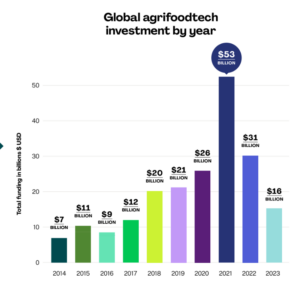US biotech startup Shiru has closed a $17 million Series A round to help it grow its business of identifying and developing novel ingredients for food items, starting with alternative proteins.
S2G Ventures led the round. Returning investors Lux Capital, CPT Capital, Y Combinator, and Emles Venture Partners also participated, as did new investors The W Fund, SALT, and Veronorte.
Money will be put towards building out the team, which is currently at 22 people, including science and fermentation expertise as well as headcount in business development and marketing. Shiru hopes to at least double its workforce within the year, founder and CEO Jasmin Hume tells AFN.
Most importantly, funds will go towards what she calls “accessing the next scale.”
“We are very much at lab scale. Part of the funds are going to be used to build out an in-house facility to create larger quantities that facilitate us to send out samples at a rapid pace to all our CPG [consumer packaged goods] customers.”
The facility will be located in Alameda, California.
Founded in 2019 in the San Francisco Bay Area, Shiru identifies and develops functional ingredients that can be used in a wide variety of food products that traditionally require animal-derived proteins.
Using bioinformatics, artificial intelligence, and machine learning, the company’s scientists analyze different proteins from plants that can mimic meaty properties like texture, flavor, emulsification, binding abilities, and nutrition. Hume says they look at “hundreds of millions of natural protein sequences.” Then, using a precision fermentation process, they can create analogs of them.
However, Hume stresses that the startup isn’t making molecularly identical versions of these proteins.
“What we do at Shiru is we find a whole range of different proteins that function in exactly the same way as the ingredient we are trying to replace,” she explains.
This approach allows for more flexibility when it comes to what the company can develop for prospective industry clients. “There are a lot of challenges in producing exact molecules. Our platform allows us choose the [proteins] that have the highest likelihood of being manufactured at scale,” says Hume.
Replacing animal-derived meat and dairy products are obvious use cases here, but the potential applications for Shiru’s technology are far broader. Hume mentions palm oil, gelatin, and replacements for functional starches as just a few examples.
All of this, of course, rolls up into the larger conversation around finding more sustainable ways to produce our food – be it lessening our reliance on livestock production, or finding more nutritious versions of carbohydrates. Hume says that Shiru’s main focus is to “identify functional proteins that can be used to replace certain properties for some ingredients that are really quite terrible for the environment.”
When the startup launches its first products commercially — no specific date has been set — they will be sold as B2B ingredients for large and small CPG companies around the world, Hume says.
“We’re positioning ourselves in the value chain as being the ingredients supplier for them, [offering] the most novel, sustainable, nutritious, functional ingredients that today they don’t have access to.”
















Sponsored
International Fresh Produce Association launches year 3 of its produce accelerator